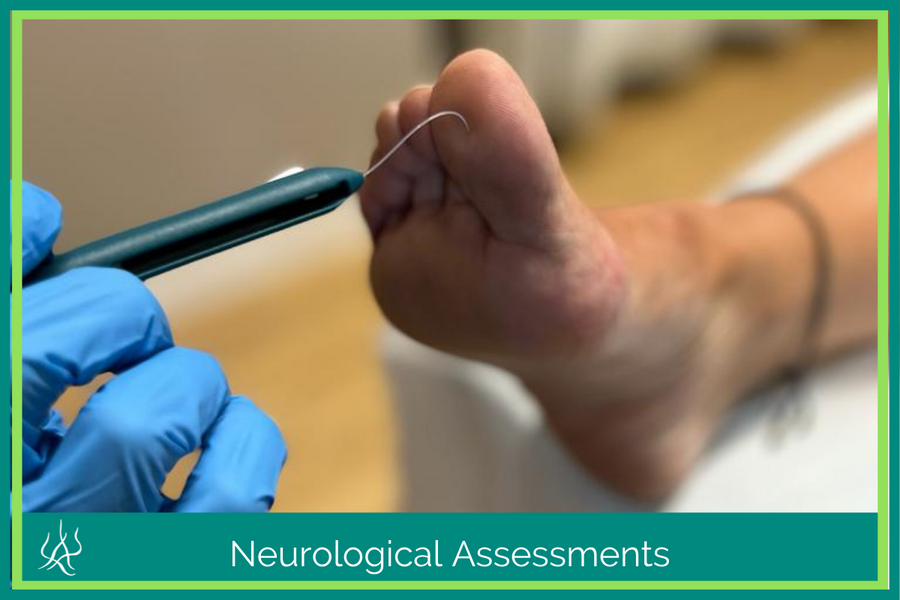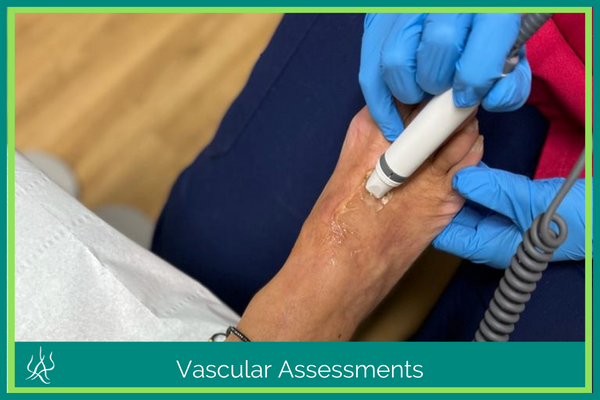
Neurological assessments are particularly important for those with diabetes. With both type 1 and type 2 diabetes, prolonged high blood sugar levels (glucose) cause nerve damage. There are three different types of nerves in the body all of which are affected.
- Sensory nerve damage is very common causing a loss of feeling, inability to feel temperature, pain and vibrations.
- Motor nerve damage can affect people in different ways causing changes in bone and muscle positions creating areas of high pressure and increasing the chance of developing wounds.
- Autonomic nerve damage reduces the production of sweat causing dry skin. Skin that is too dry can develop deep cracks called fissures creating easy access for bacteria causing infections.
 Vascular assessments are part of our routine checks.
Vascular assessments are part of our routine checks.
- During vascular assessments we assess both the arteries and the veins in the lower limb. High blood sugar levels can damage the vessels reducing circulation.
- During a vascular assessment we will check the foot and ankle surface, ask some questions and feel and listen to the pluses (arteries) in your foot. This is so we know what is normal to you and also to identify any potential problems.
- If we feel a more thorough assessment is required, we may complete an ankle brachial pressure index (ABPI) or toe pressure index (TBPI) to check for arterial disease (PAD)
Referrals may be required to appropriate services within the NHS to improve your care.
